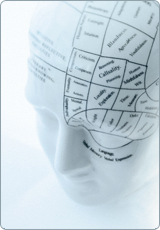The Institute for Ethics and Emerging Technology had an excellent article by Donna Hanrahan entitled "Data Mining, Meaningful Use, Secondary Use, & Potential Misuse of Electronic Health Records". It has an excellent synopsis of what many clinical researchers, ethicists, and privacy experts have been saying for many years, about how data in the EHR can be used for medical research purposes.
There are ways to do that, like consent management, audit record logs, and increasingly better means to de-identify data and prevent it from being re-identifed. This latter work is really being pioneered by Dr. Khalid El-Emam. That is, before one would be able donate the data in the EHR to science, post-mortem.
I will copy in here just the section on how data in EHR can be used for medical research:
There are ways to do that, like consent management, audit record logs, and increasingly better means to de-identify data and prevent it from being re-identifed. This latter work is really being pioneered by Dr. Khalid El-Emam. That is, before one would be able donate the data in the EHR to science, post-mortem.
I will copy in here just the section on how data in EHR can be used for medical research:
Beneficence of Electronic Data in Medical Research
Despite the ethical concerns addressed above, the use of electronic health data is critical to ensuring patient health, improving our healthcare system, and making new scientific discoveries in this technological age. Critics may question whether EHRs are truly meaningful or whether it is an “excessive bureaucratic requirement to spend public dollars on doctors’ computer systems.”xxxii This answer to this question can be discussed through the principle of justice. It is ethical, one could argue, to expend public funds for EHR systems that provides for the greater good and benefits for the public as a whole. Having data that is structured and easily retrievable benefits clinicians, patients, and the greater population. These benefits include safer prescribing, prevention of medication errors, epidemiological tracking to protect population health, and public medical error reporting. Furthermore, there is a clear need to switch from outdated, burdensome, and inefficient clinical charting traditions to electronic format.
EHR adoption aims to reduce cost, which is a primary goal of health reform in the United States. The increase in information available to clinicians can help prevent redundant or unnecessary tests and imaging. Furthermore, EHRs can provide point-of-care clinical decision support (CDS) as doctors prescribe tests, medications, and imaging requests, which can also help reduce costs. Lastly, “shared savings,” or “gain-sharing,” allows hospitals and healthcare providers to collaborate to reach quality metrics.xxxiiiAccordingly, EHRs enable users to measure desired outcomes and report this data more quickly and easily, saving both time and money. With regard to the costs associated with EHRs, studies have documented the strong return on financial investment that may be achieved following EHR implementation.xxxiv Other financial benefits include increased revenues due to improved care coordination, averted costs of paperwork, chart pulls, and billing errors, and fee-for-service savings including the rate of new procedures and charge capture. Furthermore, the secondary use of health record information is anticipated to become one of the healthcare industry’s greatest assets and the key to greater quality and cost savings over the next five years.xxxv In fact, a recent report by the McKinsey Global Institute, estimates the potential annual value to the healthcare industry at over 300 billion dollars.xxxvi These savings in cost benefit both the patient and provider.
There are also several patient-centered benefits that result from the “meaningful use” EHR data. Perhaps one of the most promising results of EHR data mining is the use of predictive modeling techniques to identify medical conditions and promote interventions before the onset of symptoms. Furthermore, retrospective analysis of the health data mined from EHRs could expedite scientific discovery in medicine by providing valuable information for research. In addition, physicians’ access to data and analysis could demonstrate the efficacy of different treatment options across large populations, which could help treat and prevent chronic conditions. Lastly, such data can be used to identify evidence-based best practices, identify potential patients for clinical trials, and monitor patient compliance and drug safety. These measures show beneficence towards the patient by providing better more individualized care.


 How it Works
How it Works
